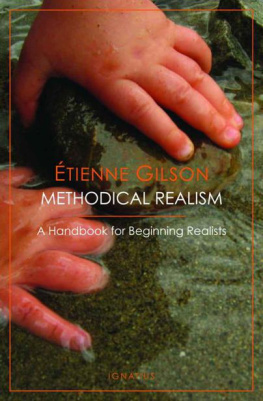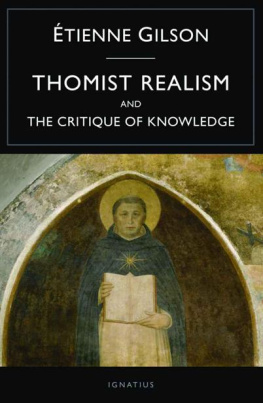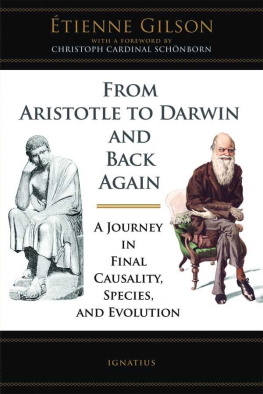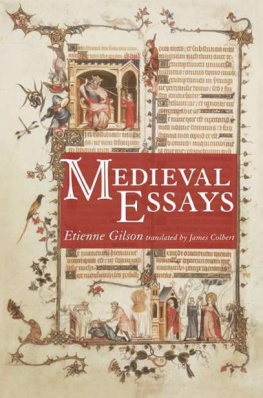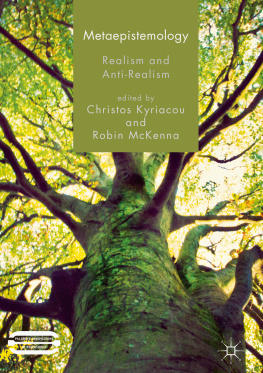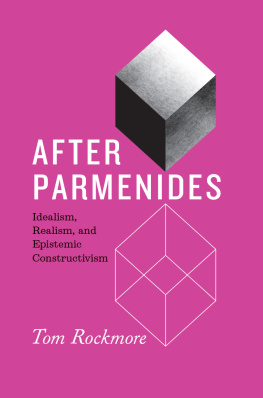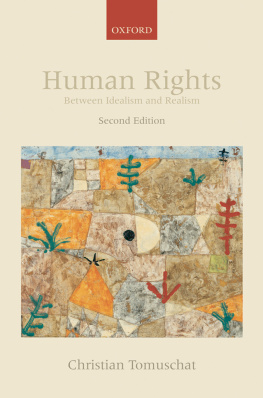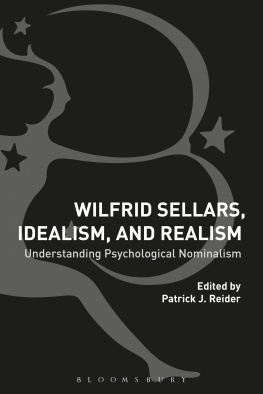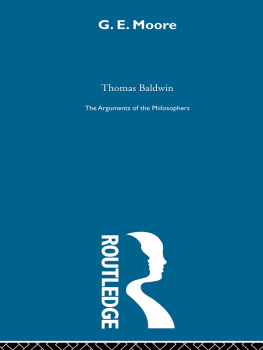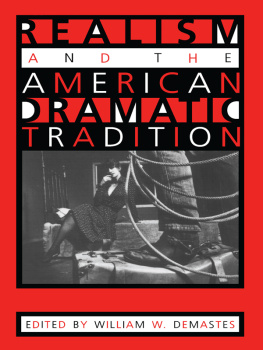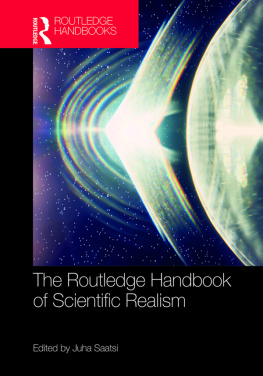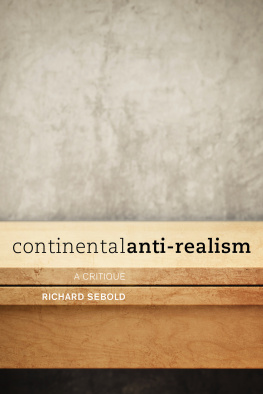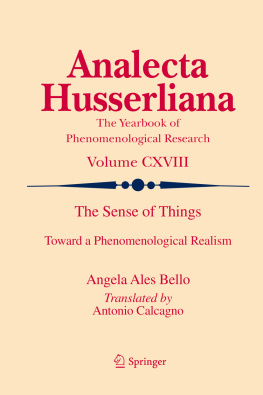METHODICAL REALISM
TIENNE GILSON
Methodical Realism
A Handbook for Beginning Realists
Translated by
Philip Trower
IGNATIUS PRESS SAN FRANCISCO
Original French edition:
Le ralisme mthodique
1935 by Pierre Tqui diteur , Paris
English translation:
1990 by Christendom Press, Front Royal, Virginia
All rights reserved
Reprinted with permission
Cover photograph
Rick J/iStockphoto
Cover design by Roxanne Mei Lum
Published in 2011 by Ignatius Press, San Francisco
ISBN 978-1-58617-304-3
Library of Congress Control Number 2010931308
Printed in the United States of America
CONTENTS
To My Friend
The Reverend Dr. G. B. Phelan
Director of the Institute of Medieval Studies
Toronto, Canada
It is not certain, it is not at any rate demonstrated, that what is neglected by the very nature of the method is in fact negligible.
Leon Brunschvicg
The essays that follow and most of which have already appeared in various journals are gathered here only to defer to a wish conveyed to me by Mr. Yves Simon. May he allow me to express my gratitude and also to share with him in the responsibility, not for the ideas contained in these essays, but for a publication of which, without him, I would not have thought .
E. G .
I
Methodical Realism
The overriding importance of the problem of knowledge in modern philosophies is plain enough. But there is something which is perhaps not so easily noticed: that to some extent even neo-scholasticism is affected by the preoccupation with epistemology. Yet it is a fact.
What the opponents of the scholastic tradition blame it forwhen they condescend to concern themselves with itis either not being a philosophy at all because tainted by its connections with theology, or being a dogmatic and naive realism which has no idea at all what critical idealism is and which has stopped short at the threshold of true philosophy. As a result, this opposition has provoked the champions of the philosophia perennis into criticizing critical philosophy and into trying to show that at bottom their system alone is capable of bringing to the problems raised by idealism the solutions they call for.
What do the systems which the neo-scholastic philosophers want to refute have in common? The idea that philosophical reflection ought necessarily to go from thought to things. The mathematician always proceeds from thought to being or things. Consequently, critical idealism was born the day Descartes decided that the mathematical method must henceforth be the method for metaphysics. Reversing the method of Aristotle and the medieval tradition, Descartes decided that a nosse ad esse valet consequential [it is valid to infer being from knowing], to which he added that this was indeed the only valid type of inference, so that in his philosophy whatever can be clearly and distinctly attributed to the idea of the thing is true of the thing itself: cum quid dicimus in alicujus rei natura, sive conceptu, contineri, idem est ac si diceremus id de ea re verum esse, sive de ipsa posse affirmari . [When we say of anything that it is contained in the nature or concept of a particular thing, it is the same as if we were to say it is true of that thing, or could be affirmed of it]. This in fact was where the Copernican revolution in philosophy took place for the first time.
That Descartes, although an idealist in method, was in intention a realist, is proved by his Meditations on First Philosophy . We can also say that in asking himself under what conditions a universal a priori mathematics is possible, he still left the door open for metaphysics as a genuine science. But when Kant carried the Cartesian method onto other ground and asked himself what are the conditions which make Newtonian physics possible, he firmly shut the door on metaphysics as a science, because all physics presupposes sensory intuition, which is plainly not to be found in the metaphysical ideas of the reason. Indeed, all idealism derives from Descartes, or from Kant, or from both together, and whatever other distinguishing features a system may have, it is idealist to the extent that, either in itself, or as far as we are concerned, it makes knowing the condition of being.
It is, therefore, quite natural that neo-scholastic philosophers should be anxious to re-establish the lawfulness of the traditional point of view. They cannot fail to feel the need to, because the impression of meeting something old-fashioned, which a reader has when turning from any modern system of philosophy to any scholastic system, derives precisely from the fact that the three centuries of philosophical speculation which have intervened between the scholastic period and the present have made us lose the habit, and even forget the possibility, of thinking from the perspective of the object.
Needless to say it is not easy to go back and make a fresh start, if we stop short of Descartes. With Descartes the Cogito ergo sum [I think, therefore I am] turns into Cogito ergo res sunt [I think, therefore things are]. But alerted as we are by the speculations of Malebranche and Hume, we feel more keenly the difficulty of getting outside the knowing subject to the object known. That is why the philosopher who tries to justify the traditional position immediately feels the need to show that thought is not imprisoned in itself, but either reaches or implies the object. And that is what certain neo-scholastics call refuting idealism. It is insofar as they succeed, or think they have succeeded, that they consider themselves realists. The transition from here to becoming interested in every manifestation of neo-realism in contemporary thought is a natural one; neo-realism, to the extent that it is an effective weapon against idealism, is an ally for neo-scholasticism. This is why it is today taken for granted that all scholastic philosophy is realist, and all neo-scholastic philosophy neo-realist, that they are such by definition. But in what sense are they?
The fact is the business is not as simple as it looksand the variety of solutions offered makes this only the more evident. Put in the simplest terms, the question comes down to what has been called the problem of the bridge. As L. Noel has clearly shown in his penetrating Notes depistemologie thomiste , the problem thus conceived is the result of picturing things in spatial terms. The object is placed on one side, the understanding on the other, and the question is then asked how the object can be where it is while at the same time being somewhere else, that is to sayas some people put it inside consciousness; or how consciousness, while remaining itself, can depart from itself to lodge in the object. Furthermore, as L. Noel has also stated in a definitive manner, thought gets beyond this naively imaginative stage only to find itself in an impasse, because one can only cross a bridge which exists, and here there is none. A thought which starts from a mental representation will never get beyond it:
From the duplicate or image there is no way of reaching the thing itself. Once trapped in immanence, the duplicate is only a mental symbol and will remain such. The principle of causality does not in the least change the situation. If you have a hook painted on a wall, the only thing you will ever be able to hang from it is a chain also painted on the wall. Belief and dogmatic assertion will help us even less; as essentially interior acts, they cannot get us out of our prison either. (p. 73)
In other words, he who begins as an idealist ends as an idealist; one cannot safely make a concession or two to idealism here and there. One might have suspected as much, since history is there to teach us on this point. Cogito ergo res sunt is pure Cartesianism, that is to say, the exact antithesis of what is thought of as scholastic realism and the cause of its ruin. Nobody has tried as hard as Descartes to build a bridge from thought to things, by relying on the principle of causality. He was also the first to make the attempt, and he did so because he was forced to by having set the starting point for knowledge in the intuition of thought. It is, therefore, strictly true that every scholastic who thinks himself a realist, because he accepts this way of stating the problem, is in fact a Cartesian.
Next page
